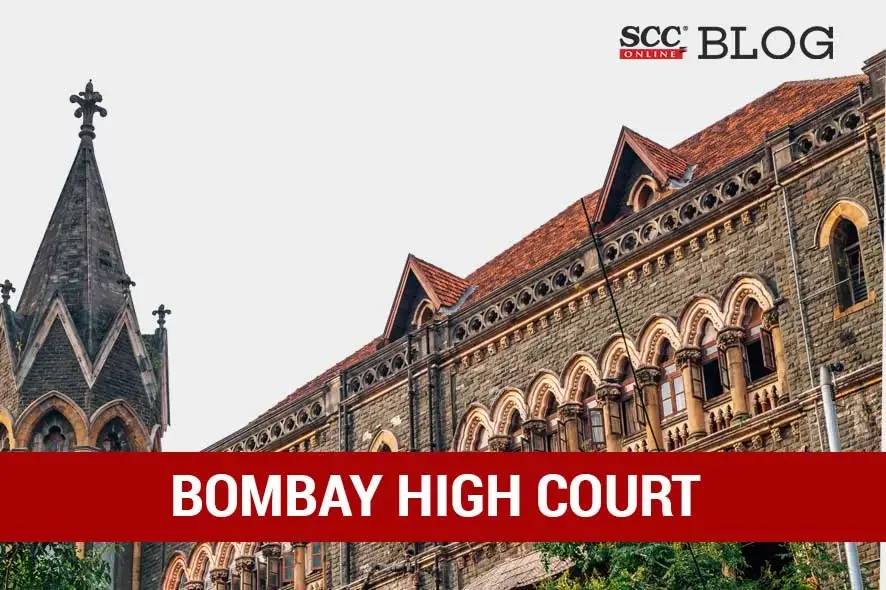Bombay High Court: An application was filed under Section 482 of the Code of Criminal Procedure seeking to quash proceedings under the provisions of Protection of Women from Domestic Violence Act, 2005 (‘DV Act’). R M Joshi, J., quashed the proceedings under Domestic Violence Act by exercising its inherent powers under Section 482 of Criminal Procedure Code.
Counsel for the respondent objected regarding the maintainability of the application on the grounds that the provisions of Section 482 of the Code of Criminal Procedure cannot be invoked in the present case. The contention is based on the case Kamatchi v. Lakshmi Narayanan, 2022 SCC OnLine SC 446, wherein it was held that the proceeding under DV Act is civil in nature and hence application under Section 482 of the Code of Criminal Procedure must be excluded.
The issue under consideration is whether there is legislative intent of exclusion of application under Section 482 of the Code of Criminal Procedure to the proceedings under DV Act.
The Court noted that Section 482 of the Criminal Procedure Code can be invoked in cases where the procedural law as contemplated by the Criminal Procedure Code is made applicable. Section 28 of the DV Act provides that all proceedings under Sections 12, 18, 19, 20, 21, 22 and 23 and offences under Section 31 of the DV Act shall be governed by the provisions of the Criminal Procedure Code. The legislative intent is, therefore, clear that all the proceedings under the aforesaid sections as well as offences under Section 31 of the DV Act are to be governed by the Criminal Procedure Code. Thus, the intention of the legislature to make applicable the Criminal Procedure Code for the DV Act is crystal clear, irrespective of the civil nature of the proceeding.
The Court further noted that perusal of the DV Act does not show the application of any provision contrary to the provisions of CrPC, except procedure laid down by the Magistrate but this does not contemplate the application of the Civil Procedure Code. It does not draw any distinction between the procedure applicable for civil and criminal remedies. This leads to only inference that the legislature intends application of Criminal Procedure Code to the proceedings under DV Act. Thus, even by implication, there is no justification to hold that the application of Section 482 CrPC was excluded from the proceedings under the DV Act. Such selective exclusion would not be tenable in the eyes of the law.
The Court opined that merely because the enactment of the DV Act is to provide for more effective protection of the right of women, it would not mean that the proceedings which are palpably not tenable shall be allowed to be continued. If it is allowed so, then it will be nothing less than sheer abuse of the process of the Court. Thus, the present application seeking to quash proceedings under DV Act is maintainable.
On the submission by the applicant that present proceedings under the DV Act is not tenable because applicants 4 to 6 never shared the household with the respondent as they have a residence at different places, the Court observed that the domestic relationship between aggrieved person and respondent is sine qua non to maintain any proceeding under DV Act. On perusal of the complaint/application to the Magistrate these applicants showed their separate place of residence by placing on record their Aadhar cards, thus, the application/complaint against such applicants could not have been entertained as these applicants do not come within the definition of ‘domestic relationship’ with the respondent.
The Court remarked that similar trend seems to have been adopted and proceedings under DV Act are filed at even distant place i.e. place where aggrieved person resides as per Section 2(s) of Act and not only husband and joint family members residing under one roof are made respondents but distant relatives those who have no domestic relationship are also roped in order to cause harassment and to build pressure on husband.
The Court quashed the proceedings under DV Act qua applicants 4 to 6. The application stands dismissed as withdrawn qua applicants 1 to 3.
[Dhananjay Mohan Zombade v. Prachi, 2023 SCC OnLine Bom 1607, decided on 18-07-2023]
Advocates who appeared in this case :
Mr. G. J. Kore, Advocate for the Applicants;
Mr. Rajesh Mewara, Advocate (appointed) for the Respondent.







